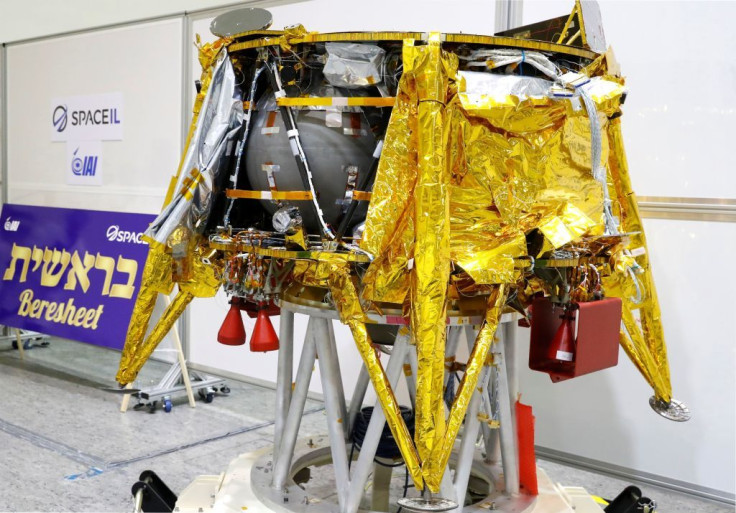Israeli Firm Could Beat SpaceX As First Private Company To Land On Moon

On Thursday, an eight-year old Israeli firm named SpaceIL will attempt to become the first private company to land a spacecraft on the Moon.
SpaceIL has booked a flight aboard a SpaceX Falcon 9 launch vehicle for its lunar lander named “Beresheet.” This Hebrew word refers to the first few words of the Bible in Hebrew: “In the beginning ….”
Should Beresheet land on the lunar surface as planned on April 11, the exploit will also make Israel only the fourth nation to accomplish this feat after the United States, the Soviet Union and China.
Before landing on the Moon, Beresheet will have travelled 4 million miles and will have orbited the Earth multiple times to gain speed before it slingshots towards the Moon. Beresheet has a propulsion system that will allow it to leave Earth orbit and enter a trajectory around the Moon.
The cost of this Israeli moonshot might also be the cheapest yet. SpaceIL said the total cost of the program, whose funding came from private donations, is just $100 million, or a wee fraction of the billions of dollars spent by the U.S. space program to get its satellites to the Moon.
"This mission that we were talking about was really a mission impossible," said Morris Kahn, who donated $40 million to the project. "The only thing is I didn't realize it was impossible, and the three engineers that started this project didn't think it was impossible, and the way Israel thinks, nothing is impossible... We are really making this dream come true."
Beresheet stands 1.5 meters tall and is 2 meters in diameter. Its science payload consists of a magnetometer developed by the Weizmann Institute of Science and a laser retroreflector array from the NASA Goddard Space Flight Center.
Beresheet is only expected to last about two days on the lunar surface. It has no thermal control system and will eventually overheat and die.
Beresheet was an entry to the Google Lunar XPRIZE (GLXP), and SpaceIL was established to compete at GLXP. This international competition challenged participating firms to develop, build and land a spacecraft on the Moon. This vehicle should be capable of moving 500 meters in any direction, and transmit live, high-definition video from the lunar surface.
GLXP was canceled in January 2018 when none of the five finalist teams were able able to meet the March deadline for a launch their spacecraft towards the Moon.
© Copyright IBTimes 2025. All rights reserved.





















